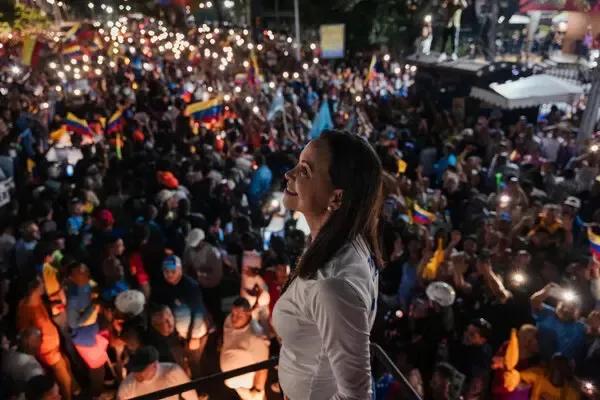The Nobel Peace Prize that today bears the name of **María Corina Machado** transcends the symbolic realm and penetrates the very heart of Latin American politics. At a time when the word "democracy" is worn out by empty use, recognition of a figure who embodies civic resistance against authoritarian power restores ethical density to the public debate. It's not just about Venezuela; it's about the universal value of saying "no" when everyone else is silent.
Machado's trajectory—persecuted, disqualified, exiled—synthesizes a dilemma that repeats itself in various corners of the world: Can politics survive without dignity? In an era marked by strategic indifference and electoral pragmatism, her figure emerges as an uncomfortable reminder that political legitimacy is not inherited or imposed: it is conquered in the moral realm.
In Latin America, where formal democracies coexist with hybrid regimes and authoritarian populisms, the Nobel for Machado serves as a warning. It does not only award a woman but a cause: the defense of the rule of law, individual freedom, and civic responsibility. In the recent history of the region, few awards have so precisely condensed the pulse of an era. From 1970s Chile to today's Nicaragua, the shadows of authoritarianism take on new forms, but democratic resistance keeps finding faces capable of upholding it.
On the international stage, this award also challenges the powers that, under the rhetoric of neutrality, tolerate systematic violations of human rights while negotiating oil, lithium, or trade routes. Machado's Nobel is, in that sense, an uncomfortable mirror: it shows that the cost of global indifference is measured in the freedoms of others.
The recognition comes, moreover, in a context of **crisis of multilateralism**, where international organizations seem increasingly powerless in the face of abuses of power. The paradox is evident: the institutional architecture created to defend peace and human rights observes, almost paralyzed, the collapse of its own foundational values. And yet, from this void emerges a figure reminding us that leadership does not require power, but conviction.
Perhaps that's why Machado's Nobel resonates beyond Caracas. It is a signal for the youth across the region: politics is not lost, as long as there are those who dignify it. Her recognition compels us to rethink the very meaning of public commitment, the role of dissent, and the possibility of building democratic projects from personal integrity, not from calculation.
The Venezuelan case, moreover, highlights a global trend: the **erosion of freedom under governments that manipulate voting and discourse** while dismantling institutions from within. In that scenario, Machado's voice takes on a universal dimension: she is not just an opposition leader, but a testimony of how to resist when the system is emptied of content.
History shows that Peace Nobels, more than rewarding trajectories, consecrate symbols. The 2025 award marks a turning point: the reevaluation of dignity as a political principle in the face of diplomatic complacency. It is not a final victory, but a reminder that power can punish, silence, or proscribe, but it cannot erase moral coherence.
The IAEPG celebrates this recognition not as a personal consecration, but as a generational call. In a continent where indifference often disguises itself as realism, María Corina Machado's case reminds us that civic courage remains the highest form of political intelligence. Because dignity—that concept that foreign ministries sometimes forget and young people still pursue—is not just a private virtue: it is the last line of defense for any democracy.

Comments